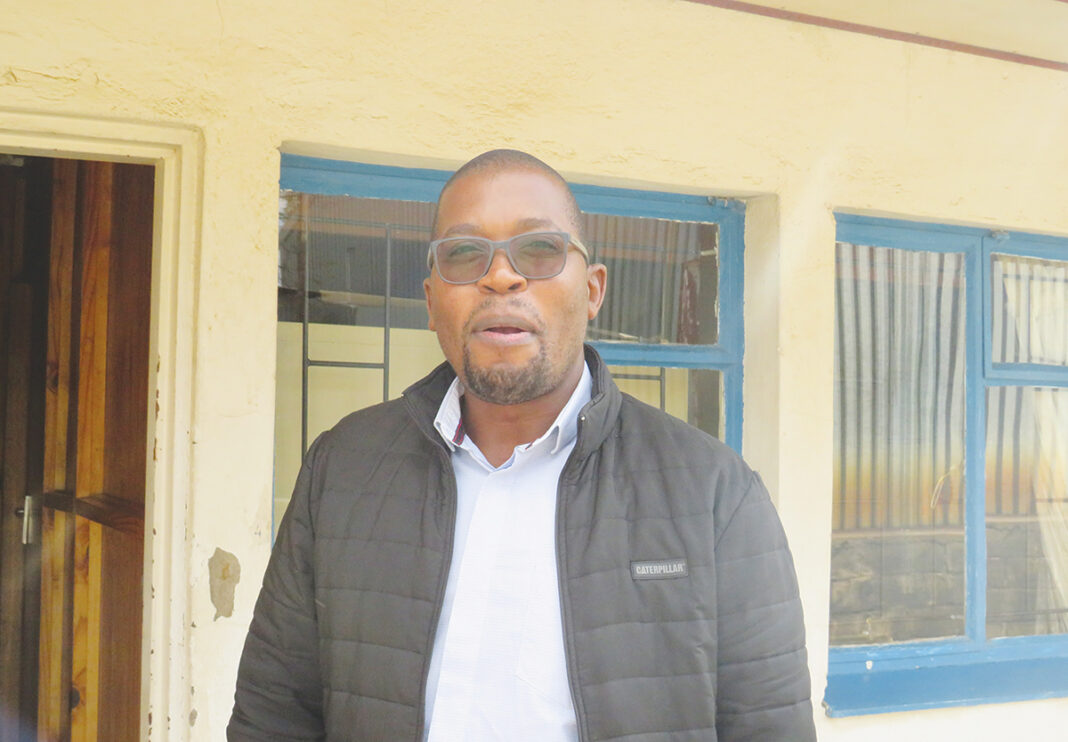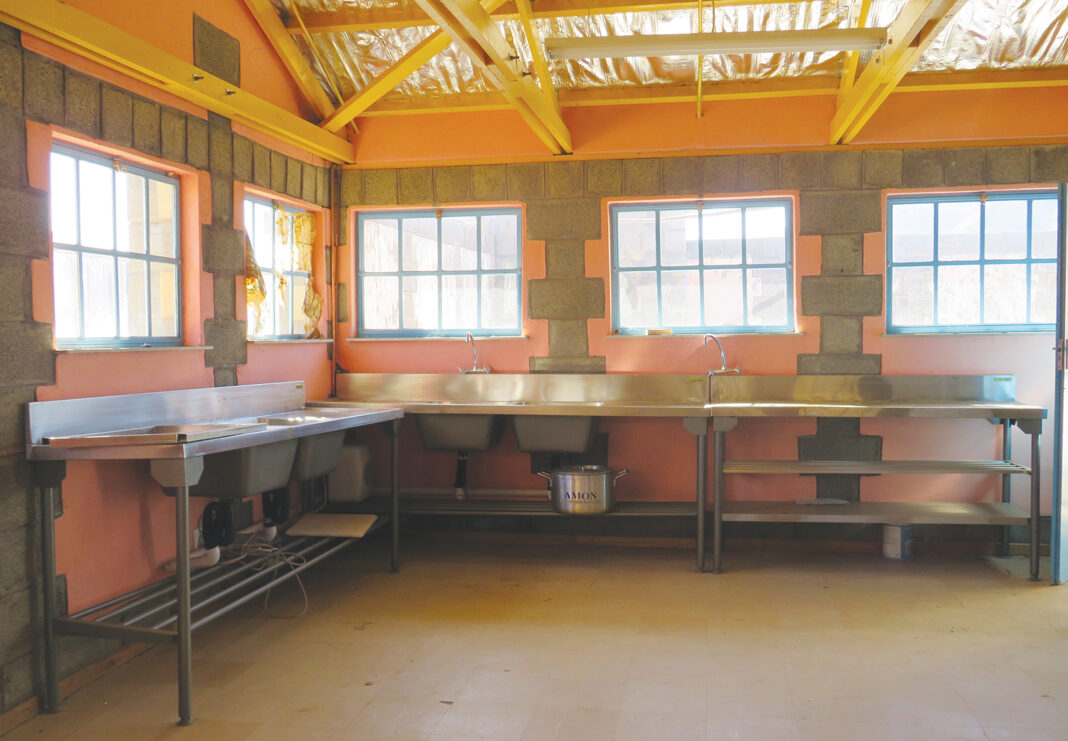Winter is upon us. It is a time to engage in winter farming which is key to maximizing productivity of small urban farming spaces. The vigorous summer cycle takes a lot out of the soil and winter gives the chance to rejuvenate soils by aerating, adding compost and feeding the soil food web. theReporter’s Kefiloe Kajane engaged Lesotho National Farmers Union (LENAFU) programmes manager Khotso Lepheana to find out more on this year’s winter cropping season.
Tell us more about LENAFU and your position in the organisation.
The Lesotho National Farmers Union (LENAFU), a conglomerate of farmer groupings in Lesotho namely 10 district farmer associations, five national commodity farmer associations and two national non-state actor associations/cooperatives, exists to enhance farmers’ contribution in transforming agricultural sector in Lesotho. It seeks to achieve this by building farmer capacity, providing leadership, and sharing information and doing advocacy. LENAFU was established in 2004 and have consistently grown in terms of organizational development, popularity among farmers, recognition and programme relevance.
LENAFU was formed to unite farmers into a vibrant solidarity platform that shall amplify their voice in transforming agriculture in Lesotho. This emanates from a premise that agriculture in the country is fast deteriorating and potential of farmers to reverse the situation thwarted in the sophistication of bureaucratic implementation agencies of otherwise well-expressed policy intentions.
Our principles
• Equal participation
• Accountability and transparency
• Inclusiveness and relevance
• Mutual respect and trust
• Integrity and confidentiality
• Collective ownership and equality
• Effective and accurate representation of members’ interest
LENAFU vision and mission are coherent and respond clearly to the challenges of a farmers in Lesotho. The main challenge is unheard voice of fragmented and weak farmers’ sector.
Our Mission; Empower and organize farmers for profitable agriculture and effective policy engagement. Vision; Lesotho where a farmer excels in production and other value chain aspects to sufficiently meet own needs and adequately satisfy
General challenges facing the agriculture and food security sector in Lesotho
How important is winter farming in Lesotho and would you say it is as successful as summer farming?
The definition of food security clearly says access to adequate, healthy and nutritious food at all times. Access is always preceded by availability. That is, for communities to have access to food, that food should be first available in acceptable forms. The efficient and sustainable supply of food requires effective and sustainable production systems. The all-year round food production is essential to make food available in all different times in a year. Thus, winter farming is important as it contributes to food production and availability in Lesotho. While winter farming is important, the level of involvement of farmers and other stakeholders is relatively low compared to summer cropping.
What is lacking as far as farming in Lesotho is concerned, generally, and how can it be improved?
Winters in Lesotho are very cold, making farming difficult for some crops. Besides the vegetables and fodder production, farmers do plant wheat and peas as winter crops and this happens in the lowlands and foothills. The main challenge facing the winter farming is the lack machinery and equipment. Some farmers abandon their fields because they cannot get the planters for wheat.
At times of harvest, some farmers struggle to get the combine harvesters until their crops over matured and deteriorate. Peas is not planted in large scale and it is produced mainly for the green harvest (not a fully matured crop). To improve our winter farmers, we need to enhance the accessibility of inputs and the equipment/ machinery as well as extension support service to the farmers.
How versatile is winter farming in Lesotho?
As I have indicated above, winter farming is very essential as it contributes to food production and availability from the farming family level to the national level. In fact, if we can improve our agricultural systems for food production in winter, that would say, we will be contributing to the advancement of our economy basically from the agricultural perspective.
Since the 50 percent subsidy on local farmers on agricultural inputs in 2019 winter cropping season, would you say it helped farmers in anyway?
The subsidy model is good, however the challenge would be, and good for who. The challenge is always the stringent attachment to the winter planting where farmers are compelled to plant on the aggregated areas for the ease of provision of services such as combine harvesters. Some potential farmers fail to plant the wheat because they cannot find other farmers or fields to merge with in the production of wheat. This says, the lack of equipment/ machinery makes farmers not to plant their fields in winter. We need to have small harvesters which may not necessarily require the aggregated areas (block farming).
Would you say dry winters have over the years impacted production?
Crop production is about the conducive environment; adequate moisture, good fertility of the soil and the temperature. The dry winter means that there is no adequate water in the soil system for the plants and this affects the soil nutrients mobility and uptake by the plants. Dry winters/ seasons are not favorable for the production of plants as they usually do not do well.
To your knowledge, has Basotho over the years adapted farming as their primary source of employment or income?
Majority of the people in the rural areas make their living from agriculture. Thus, agriculture forms the primary source of income or employment. However, there are two important issues here ‘farming’ and ‘farming as a business’. Farming may just involve food production for household consumption while farming as a business involve food production for generating income or creating employment.
What are some of the suitable crops for winter cropping for a country like Lesotho and how easy is it to plat such?
Vegetables, peas and wheat. The challenges have been alluded in the above responses
We have seen many people now in the country opting to use greenhouses; are they of any help when it comes to winter cropping?
Actually, they are not the greenhouses but tunnels and shade nets. The main reason why most farmers are not producing vegetables in winter as they do in summer is the cold conditions which result in frost. The shade nets and tunnels protect the crops against the frost and hail storm and slow the soil moisture loss or evaporation. However, because of the low temperatures in winter, there are crops which cannot not do well.
What are some crops (if any) that used to be planted in winter but, because of the climate change affecting our country, are no longer growing productively?
I don’t have a clear record on the type of crops which were used to be planted in winter but now not planted as a result of climate change influence. It should be noted that the climate change has brought about changes in weather conditions resulting in varying weather patterns, drought, heavy rains and others. On favorable winter conditions, basically with adequate moisture content and warm temperatures, people produce in large numbers, however, we see few producing in dry winters. Thus there is varying planting patterns and that is based on the availability of moisture content in the soil system.









